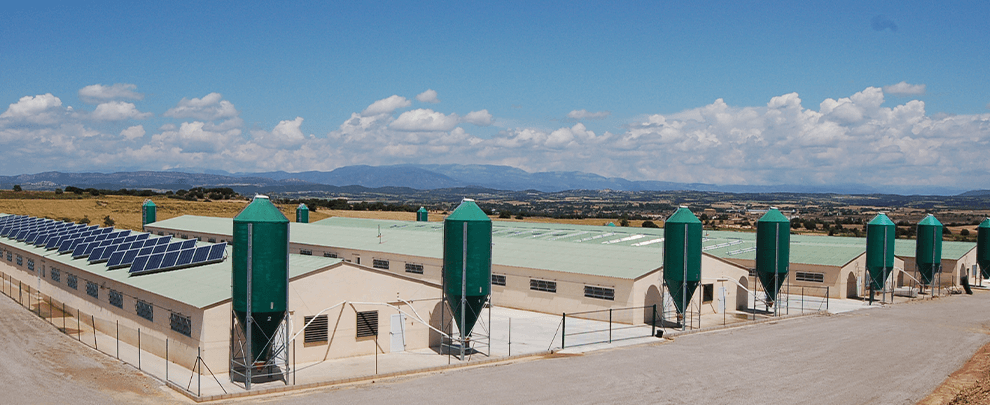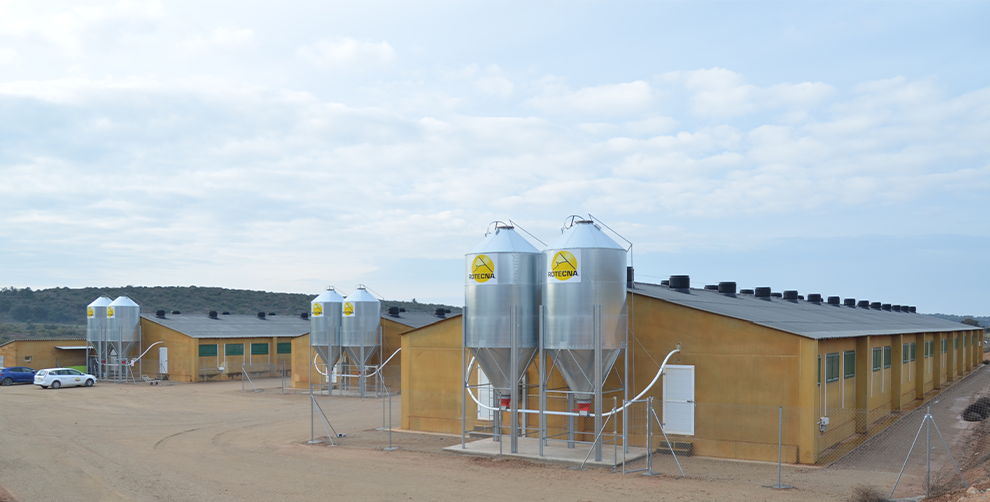Blog
Blog

Two years with no farm extensions or new farms in some catalan areas
12 of November of 19 - News
The Catalan Government recently approved the Soil Fertilisation and Livestock Manure Management Decree. This establishes an absolute moratorium of two years from the publication of the decree for the construction of new farms and the extension of the capacity of existing farms located in any of the 66 municipalities with a high livestock density index (LDI), i.e., over 1.2.
The objective of the new regulation is to ensure the quality of soil and ground water in the region, and also guarantee the feasibility and sustainability of livestock holdings. To achieve this, 500 random samples of agricultural land will be taken and analysed to check that they do not exceed the maximum concentrations of nutrients in the soil.
“The Farmers Union is very pleased that this decree has been approved. The problem is that not all vulnerable areas have surpluses”, says Rossend Saltiveri, who is responsible for the Farmers Union (UP) pig farming sector. The UP is not in agreement with certain issues set out in the new legislation, such as the temporary prohibition of the First Transitory Provision, which establishes that if the Catalan Government has not reviews the action programme one year after the next modification or extension, no new farms can be built and no extensions can be made to existing farms.
In turn, the Association of Young Farmers and Stockbreeders of Catalonia (JARC) has criticised the delay by the Department of Agriculture in publishing the new regulation. Even so, both organisations support this initiative. “In Alcarràs (Lleida) we have been using solid-liquid separation systems for some time now to treat slurry and we are making many investments to improve in this area. Obviously, the results are slow in coming but they will come, and with all these changes, we will not only improve the water quality, the nitrates we use will also be more natural”, explains Jaume Bernis, Sector Manager of the pig farming sector of the JARC and the Spanish Farmers and Stockbreeders Coordinator (COAG).
According to Bernis, “There are nitrates of livestock origin on farms, and also nitrates of human and above all, mineral origin, but no-one takes them into account. We do not want to shirk our responsibilities, and, as in all businesses, there are people who still do not do their jobs well. But we want to improve these nitrates by creating an opportunity to obtain benefits for future farms”. Saltiveri shares this opinion and adds that there is only one thing missing in the new legislation; control by companies over nitrates of mineral origin.

Revaluation of manure
In the place of origin (farms), the objectives are to reduce volumes of slurry, nitrogen and other nutrients generated on livestock farms by improving livestock feeding systems and the use of new technologies, the optimisation of storage systems and the consolidation of treatment systems to permit the export of nutrients outside areas with high livestock densities in a circular bioeconomy effort.
In the destination (application to fields or sale), the aim is to guarantee excellent fertilisation that is in keeping with the needs of both crops and soils.
In this respect, as Rossend Saltiveri says, “The equipment used to apply livestock manure should have a system that permits great uniformity in distribution and the proper adjustment of the dose, as well as having a conductivity meter or another equivalent precision method to estimate the concentration of nutrients in the slurry”. To ensure compliance with both regulations, they are asking the Catalan Department of Agriculture for “aid, finance, training programmes and technical advice”.
Another proposal made by the union is for the Catalan Government to establish measures each year to promote the engagement and development of all those regulations related to fertilisation management and livestock manure that go beyond that established by current EU legislation.
“We stockbreeders and farmers are affected in part by the obligations we have had until now, as we will have to file an annual report on the management of manure and other organic and mineral nitrogenous fertilisers in order to guarantee their traceability”, says Saltiveri. In parallel, to ensure traceability in transport, if the plot to be fertilised is at a distance of more than 10 km (5 km, two years after the publication of the decree), or in the case of a service company, the livestock manure transport equipment must be equipped with an electronic GPS that ensures better traceability of long-distance livestock manure applications.






